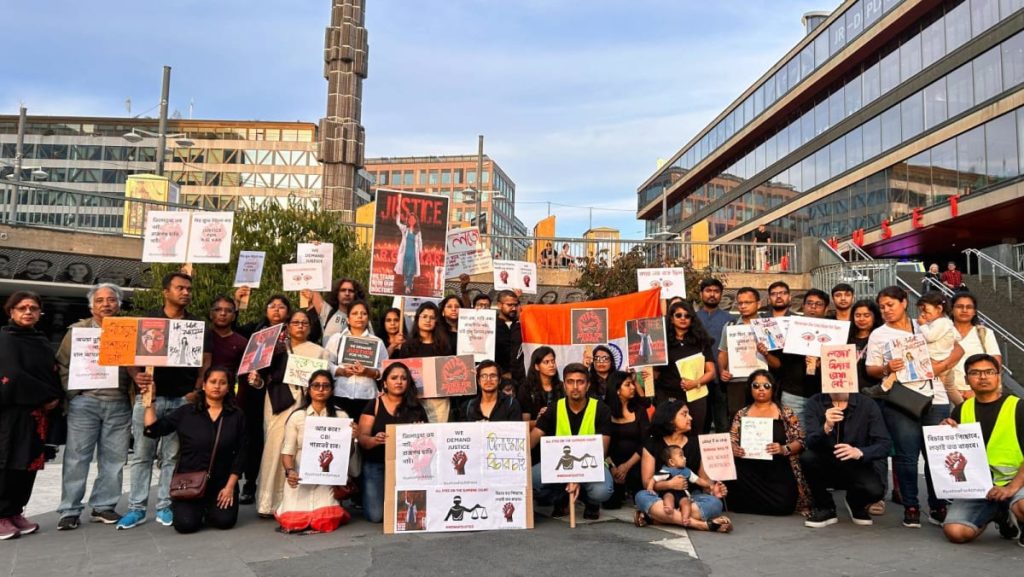A suspect has been arrested along with the former principal of R G Kar Medical College, where a young trainee doctor was brutally attacked while on duty. Dipti Jain, an organizer of the global protests, expressed shock and outrage at the crime’s ruthlessness and brutality. The doctor had been working a long shift and had to sleep on a piece of carpet in a seminar room due to the lack of dorms or resting rooms. She was later found with severe injuries, including bleeding from her eyes and mouth, as well as injuries to her legs, stomach, ankles, and hand.
Protests erupted in several cities in the San Francisco Bay Area, with hundreds of people demanding accountability for the crime and safety for Indian women. In Dublin, California, protesters formed a human chain, shouting slogans and carrying placards demanding justice for R G Kar. People of all ages, including children and seniors, participated in reciting poems and engaging in street theatre. Sukalpa Chowdhury, a physician who joined the protests, highlighted the importance of workplace safety for everyone, not just women.
Similar protests took place in Stockholm, Sweden, where mainly women gathered to sing songs in Bengali and hold signs in solidarity with the victim. Activists point out that despite the introduction of tougher laws after the 2012 Delhi gang rape, cases like the one in Kolkata show that women continue to face sexual violence. India’s federal police are currently investigating the crime, but charges have not yet been filed. The country’s Supreme Court has created a hospital safety task force to recommend measures to ensure the safety of medical workers.
The case of the attacked trainee doctor has sparked outrage and calls for justice both in India and abroad, with protests highlighting the ongoing issue of violence against women. The lack of adequate safety measures for medical workers and the need for improved workplace security have been key concerns raised by activists and protesters. The global demonstrations have brought attention to the vulnerability of women, especially in professional settings, and the urgent need for stricter measures to prevent such atrocities from occurring in the future.
The widespread protests in different countries reflect the international community’s solidarity with the victim and their demand for accountability and justice. The voices of the protesters, chanting slogans, waving placards, and engaging in various forms of creative expression, send a powerful message of unity and support for women’s rights. The global outcry underscores the urgent need for systemic change to combat gender-based violence and ensure the safety and dignity of women in all spheres of society.
As investigations continue and calls for justice grow louder, the protests serve as a reminder of the collective strength and determination to challenge the culture of impunity surrounding gender-based violence. The case of the attacked trainee doctor has galvanized people around the world to stand in solidarity with survivors of gender-based violence and advocate for a more just and equitable society. The ongoing struggle for women’s safety and rights remains a pressing issue that requires the concerted efforts of individuals, communities, and governments to bring about meaningful change and ensure a future free from violence and discrimination.


